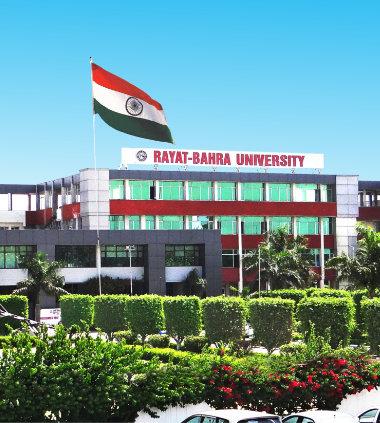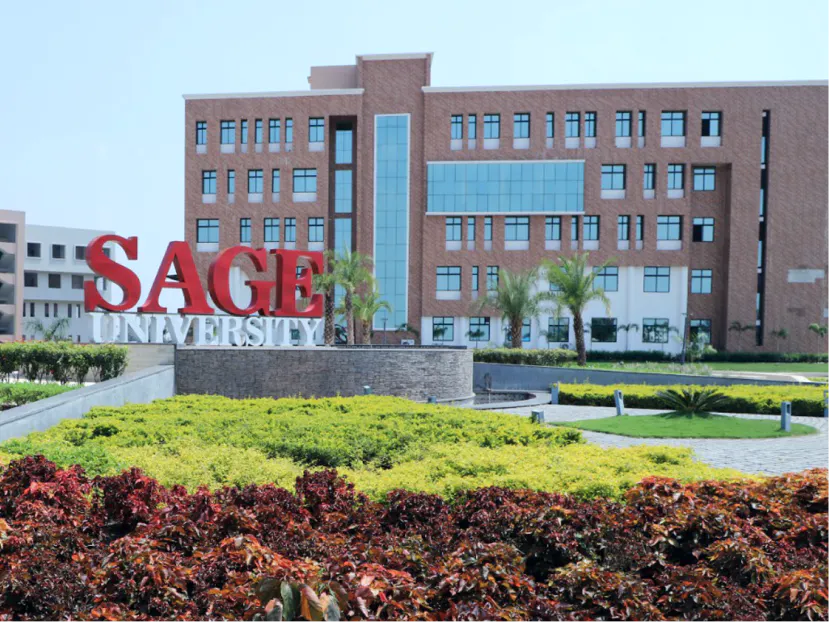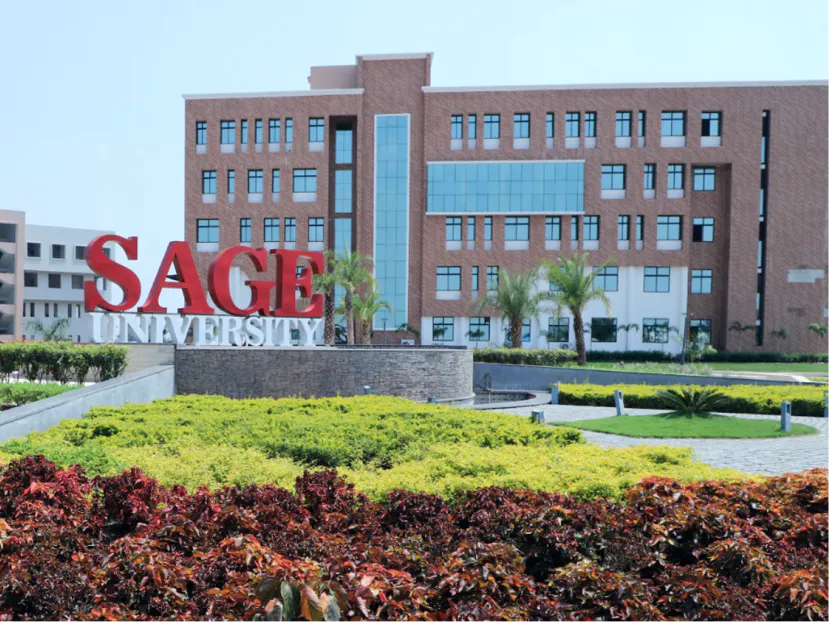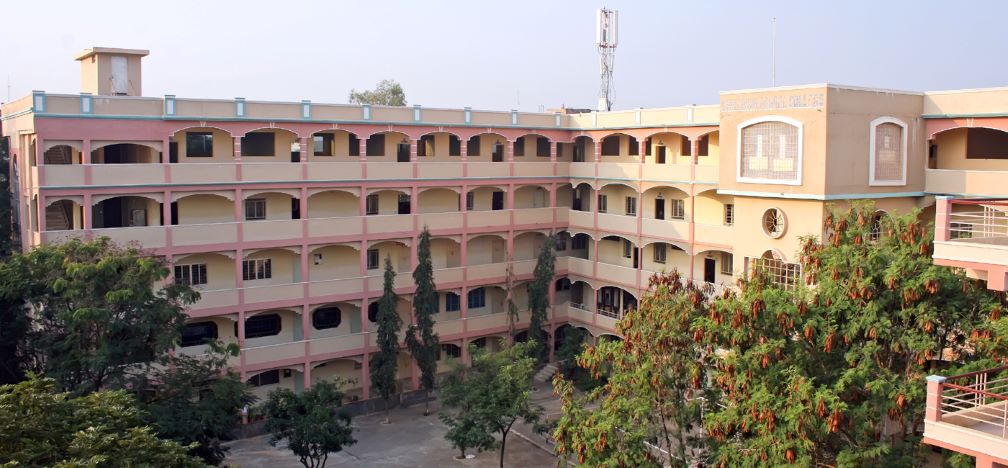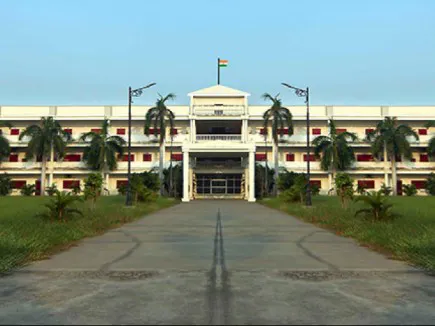Why choose B.Tech
Top B.Tech Colleges in India with Sunstone
To know more about campuses Talk to our counsellors!!
Admission Process in B.Tech Colleges in India
The process

Submit the application form
Prospective students must fill out the online application form requiring personal information, academic records, and other relevant details.
Appear for the entrance exam
Students must appear for a relevant national, state, or university-level entrance exam to qualify for the admission process.
Attend the personal interview
After conducting the entrance test, the university evaluates the communication skills and motivation of qualified students for the B.Tech course.
Application review
After the personal interview, the university will review the application, test scores, and interview performance to evaluate the student's overall suitability for the program.
Admission status
The university will inform the students of their admission status. If the student is accepted, they will be required to pay the course fee and complete any additional requirements.
B.Tech Eligibility Criteria in India
An institute grants admissions to the B.Tech degree programme based on academic performance and fulfilment of eligibility criteria. The entry requirements are assessed to verify the candidate's potential to succeed in the programme.
Read More- The applicant must complete 10+2 or equivalent with an overall minimum of 60% marks.
- The applicant must have studied the compulsory subjects of Physics, Chemistry, and Mathematics to gain acceptance into a B.Tech programme.
- The applicant must also pass the relevant B.Tech entrance examination and meet the cut-off score released by their university of choice.
- Applicants seeking Lateral Entry into B.Tech programmes must hold a diploma from a recognised institution.

Why is India
Top B.Tech Destination?
Diverse Career Prospects
India offers diverse career options in engineering, allowing students to choose a field that aligns with their interests and strengths.
Challenging Work Environment
The engineering field in India is exciting and challenging as engineers apply their knowledge to solve real-world problems.
Lucrative Job Opportunities
Engineers in India have high earning potential and job stability with opportunities for advancement and career growth.
Reputed Career Choice
Engineers are respected and valued members of society in India with an opportunity to shape the infrastructure and technology of the country.
Specializations Offered by the Top B.Tech Colleges in India
- Engineering is a broad discipline with the availability of a plethora of specialisations. The B.Tech degree provides students with theoretical and practical knowledge, and the course outcomes vary as per the chosen specialisation. Depending on your area of interest and career goals, you can choose from several specialisations to complete your B.Tech course.
B.Tech in Aeronautical Engineering
- Aeronautical engineering is a field of study that deals with the design, development, testing, and maintenance of aircraft and spacecraft.
B.Tech in Automobile Engineering
- Automobile engineering is a field of study that deals with the design, development, and manufacturing of automobiles.
B.Tech in Biotechnology Engineering
- Biotechnology Engineering is an interdisciplinary field of study that combines the principles of biology, chemistry, and engineering to develop new technologies and products in the field of biotechnology.
B.Tech in Chemical Engineering
- Chemical Engineering focuses on designing, developing, and optimising chemical processes to produce various products.
B.Tech in Civil Engineering
- Civil engineering is a field of study that deals with the design, construction, and maintenance of infrastructure such as roads, bridges, buildings, and other structures.
B.Tech in Electronics Engineering
- Electronics Engineering is a branch of electrical engineering that deals with the design and development of electronic devices and systems.
B.Tech in Electrical Engineering
- Electrical Engineering is a branch of engineering that covers the study of electrical circuits, control systems, power electronics, digital systems, and communications systems.
B.Tech in Genetical Engineering
- Genetic engineering is the branch of biotechnology that covers the study of the principles of genetics, molecular biology, and biotechnology.
B.Tech in Industrial Engineering
- Industrial engineering is a branch of engineering that covers the study of methods for improving efficiency, productivity, and quality, as well as logistics, operations research, and management science.
B.Tech in Information Technology Engineering
- Information Technology Engineering is a branch of engineering that deals with the design, development, and application of information systems.
B.Tech in Mechanical Engineering
- Mechanical Engineering is a branch of engineering that covers the study of the principles of physics, mathematics, and materials science, as well as engineering design and manufacturing processes..
B.Tech in Petroleum Engineering
- Petroleum engineering is a specialisation that deals with the exploration, extraction, production, and transportation of crude oil and natural gas.
Careers After B.Tech
Aeronautical Engineer
Designs, develops, tests, and maintains aircraft and aerospace systems.
Civil Engineer
Outlines, plans, and oversees construction and maintenance of infrastructure such as buildings, bridges, roads, and water supply systems.
Mechanical Engineer
Plans, develops, tests, and maintains mechanical systems, including engines, machines, and heating and cooling systems.
Electrical Engineer
Develops, tests, and maintains electrical systems and equipment such as power generation, transmission and distribution systems, and electrical control systems.
Automobile Engineer
Designs, develops, tests, and maintains vehicles and automotive systems, including powertrains, transmissions, and electronic systems.
Computer Science Engineer
Develops, tests, and supports software and computer systems to solve complex problems.
IT Engineer
Develops, manages, and tests IT infrastructures and networks to ensure they are secure, efficient and reliable.
Biomedical Engineer
Designs, tests, and maintains medical equipment and technology such as imaging systems, prosthetics, and surgical instruments.
Top Recruiters for B.Tech graduates from Top B.Tech Colleges
Entrance Exams For Top B.Tech Colleges in India
B.Tech entrance exams in India are a crucial step for students who wish to pursue a career in engineering. These exams are conducted by various institutes and state governments to provide admissions to engineering colleges across India.
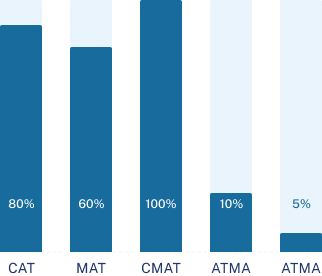
Conclusion
- If you plan to pursue B.Tech in India, you can check out the various B.Tech colleges offering the benefits of Sunstone.
- Sunstone is one of India's leading education services platforms that offers a wide range of perks in 50+ campuses across 35+ Indian cities.
- Students who sign up with Sunstone can enjoy end-to-end (admission to placement) assistance.
- Moreover, students benefit from admission and fee payment assistance, industry-aligned internships, training and certifications, industry integration, upskilling, personality development, 100% placement assistance, job interviews, and much more.
What is the full form of B.Tech?
The B.Tech full form stands for Bachelor of Biotechnology.
What is the duration of the B.Tech degree?
The Bachelor of Technology (B.Tech) course generally lasts four years in most Indian institutes.
What is the difference between B.E and B.Tech?
A Bachelor of Engineering or BE course is more theoretical, whereas a Bachelor of Technology or B.Tech course is more practical. The primary distinction between these degree programmes is the course material and the program's orientation.
Is B.Tech a tough course?
B.Tech is a relatively demanding and complex course. It entails a comprehensive undergraduate engineering syllabus. Students must prepare for the exams by reading the daily subjects and grasping the important concepts throughout the semesters.
What are the eligibility requirements for the B.Tech course?
Students must have passed the Class 12 exam with Physics, Chemistry, and Mathematics as core subjects from a recognised board. They must have received a minimum of 60% in all the above subjects combined.
Should I do B.Tech from a private college?
Since private colleges are self-governing, they can improve their curriculum year after year to meet industry demands. That being said, private colleges provide plenty of opportunities for students to gain real-world skills.
How many IITs are there in India?
There are around 23 Indian Institutes of Technology (IITs) in India.
How many NITs are there in India?
There are around 31 National Institutes of Technology (NITs) in India.
What are B.Tech fees in private colleges?
The average B.Tech fee in private colleges across India ranges between ₹3 lakhs and ₹19 lakhs. The tuition fees vary according to the city, location, campus facilities, infrastructure, education quality, and other similar factors.
Which are the top government B.Tech colleges in India?
Some of India's top government engineering colleges include the Indian Institute of Technology (IIT), Madras, Indian Institute of Technology (IIT), Delhi, Indian Institute of Technology (IIT), Bombay, and Indian Institute of Technology (IIT), Kanpur.
Which is the best private college to pursue B.Tech?
Chaitanya Deemed to be University, Geeta University, and Shobhit Deemed to University are among India's best private engineering colleges.
Which college is best for B.Tech?
Sushant University, Jagran Lakecity University, and SAGE University are among the best Indian universities to study Bachelor of Technology (B.Tech).
When does B.Tech colleges start?
It depends on your university. In general, all engineering colleges and deemed universities begin classes in August. Some colleges begin classes in the last week of July, and some may accept students until the last week of September.
How to get government college for B.Tech?
Suppose you wish to be admitted to government institutes such as IITs, NITs, IIITs, and Government-Funded Technical Institutes (GFTIs) for B.Tech. In that case, you must take the JEE Main and/or JEE Advanced entrance exams and receive a valid score.
Which is the best B.Tech college in India for placement?
Shri Ramswaroop Memorial University, Jagran Lakecity University, SAGE University, and Chaitanya Deemed to be University offer some of the best placements to its B.Tech graduates.
Which are the top entrance exams for admission to the B.Tech course?
The top exams include JEE Main and JEE Advanced which are national-level exams for admissions to NITs, IIITs, GFTIs, and IITs. Other prominent B.Tech entrance exams in India include VITEEE, MHT CET, TS EAMCET, BITSAT, KCET, GUJCET and WBJEE.
What are the job opportunities for B.Tech graduates after engineering?
Depending on your B.Tech specialisation, the job profiles include Computer Science Engineers, IT Engineers, Automobile Engineers, Chemical Engineers, Electrical Engineers, etc. B.Tech graduates are also hired as Researchers, Consultants, Subject Matter Experts, and other positions in addition to engineers.
What is the average annual salary a B.Tech graduate can expect?
The average salary offered to B.Tech Engineers in India ranges from ₹0.3 Lakhs to ₹5.0 Lakhs per year. According to Ambition Box, the average annual salary is ₹2.4 lakhs per annum.
Which B.Tech specialisation offers the highest salary?
Computer Science Engineering and IT Engineering are the two B.Tech specialisation with the highest annual salary packages. The average salary for a computer science engineer in India is ₹576,000 per year, which varies depending on skillset and experience.
How are the B.Tech colleges in India classified?
The classification of B.Tech colleges in India consists of Government Institutes, Private Institutes, and Deemed Universities. Some employers also classify engineering colleges as Tier 1, Tier 2, and Tier 3, depending on the city and institute.
What are the top B.Tech Colleges that conduct their own entrance tests?
Universities such as Vellore Institute of Technology, Manipal Academy of Higher Education, Kalinga Institute of Industrial Technology, SRM Institute of Science and Technology, BITS Pilani, and others hold their own entrance exams for B.Tech admissions.
Is it possible to pursue B.Tech without JEE?
Yes, you can get into private colleges without taking the JEE. JEE Mains is an entrance exam for admission to government colleges such as IITs, NITs, and GFTIs. Vellore Institute of Technology is one of a few colleges that accept students without a JEE score.
Which is the best Computer Science Engineering B.Tech College in India?
Sage University, Geeta University, Jagran Lakecity University, and Shri Ramswaroop Memorial are among the best Computer Science engineering colleges in India.
Which is the best Electronics and Communication Engineering B.Tech College in India?
Global Institute of Technology and Management, Sushant University, Shobhit Deemed to be University, and Medicaps University are among the best Electronics and Communication Engineering B.Tech Colleges in India.

